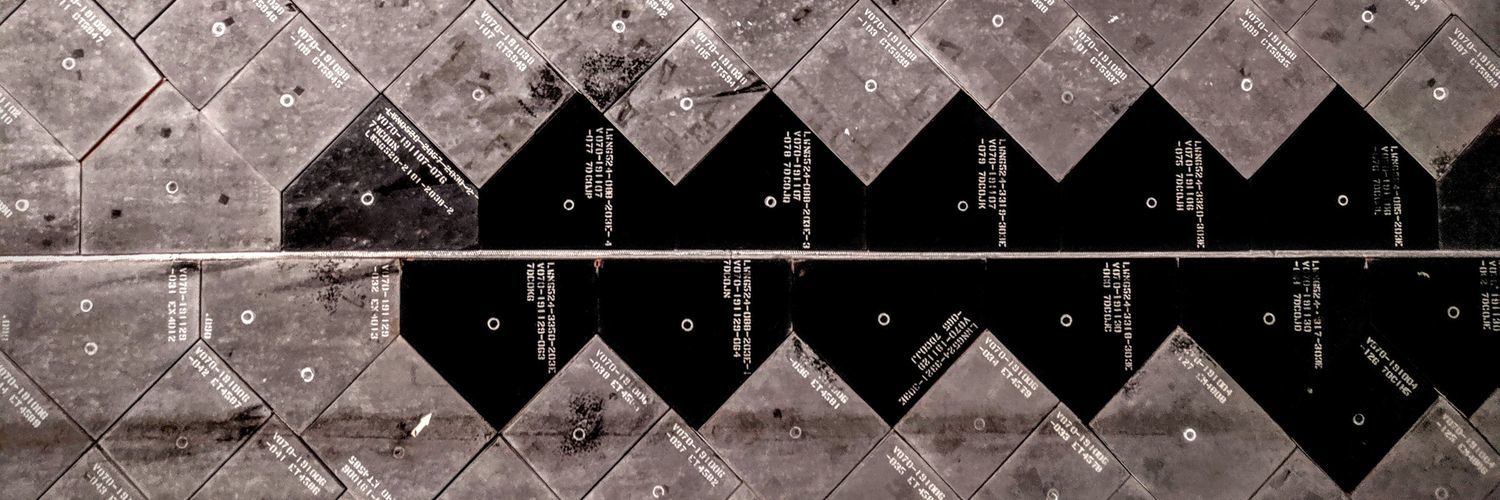
"[ots-dev] Stamp/Beacon Trees for Secure, Precise, Trusted Timestamping and Clock Synchronization" - https://lists.opentimestamps.org/pipermail/ots-dev/2021-January/000106.html
tl;dr: My new merkle tree construction combines the precision of NTP, and the security of Roughtime. And unlike either, it can be scaled arbitrarily with untrusted servers.
Added to the #OpenTimestamps protocol, it'd allow one service to provide both high accuracy, trusted time, and trustless, low-accuracy, Bitcoin timestamps. A one-stop-shop for all your timing needs.
@sebx2a You're using a really cheap VPS hosting service, so no surprise there.
Really cheap... damn, maybe I should move some stuff to them... those are good prices. :D
@sebx2a "don't really use email enough"
God damn zoomers... :D
@sebx2a There's probably ways to fix all that... but why bother? Sounds like you don't actually need email anyway.
@sebx2a Mutt is god. 😂
@sebx2a Got your email, and replied.
get the bitcoin whitepaper directly from the utxoset. This works on a pruned node:
seq 0 947 | (while read -r n; do bitcoin-cli gettxout 54e48e5f5c656b26c3bca14a8c95aa583d07ebe84dde3b7dd4a78f4e4186e713 $n | jq -r '.scriptPubKey.asm' | awk '{ print $2 $3 $4 }'; done) | tr -d '\n' | cut -c 17-368600 | xxd -r -p > bitcoin-test.pdf
@Seccour @sebx2a @nikcantmine @xyse @afilini My best chance to be a zoomer is with a 🚀
@sebx2a @nikcantmine @xyse @afilini Try sending me an email through it: pete@petertodd.org
I'm curious to see if my setup marks you as spam.
Does it get blocked by gmail?
Ok, zoomers.lol is now backed up every second day¹. The only thing not fully prime-time ready yet is the mail server (low rep, marked as spam). But since registration is with approval only (you better be a zoomer 😜) that's ok, I can manually confirm the email with 1 more click. So join if you want @nikcantmine, @xyse, @afilini …
¹Damn these media files are big … otherwise I'd do it more often, maybe I'll write something to deduplicate the data.
@lucash_dev @nic My willingness to talk to journalists has dropped dramatically in general; Coindesk specifically I almost entirely stopped responding too due to badly reporting that wasn't getting facts correct. A year *prior* to Cuen's first article on the Lovecruft case in fact!
Re user's being confused, here's an example.
Even with control of no hashing power at all, you can very occasionally do double spends of confirmed transactions. You just have to be lucky enough for a stale block to get mined at the right time.
Stale blocks are pretty rare these days. I don't have stats handy. But looks like the % is something like 1 in 1000 blocks or less. So that'd be a sub 0.1% chance of success per attempt.
@kekcoin Thing is, since we don't know what that transaction was for, Andreas can _not_ claim it wasn't a double spend, even by a definition that requires someone to get ripped off. We just don't know if someone did or did not lose money. I'm _guessing_ no. But I can't be sure.
@yeolde That's not the issue. The fair way to report it is to tell the truth: this particular one looks like it was inconsequential. But more importantly, it's a reminder that while very rare, they still can happen on occasion. So wait for multiple confirmations if you can't take that small risk. Equally sometimes zero confs is fine.
Like theft in general: it's rare enough that shops can afford to leave most things out in the open in most places. But not highly valuable stuff like jewellery.
@kekcoin I define a double-spend as happening if wallet software would have likely observed one happening.
So double-spends of unconfirmed txs happen *constantly*. I personally have services that do them dozens of times every day.
Double-spends of txs with 1 confirmation are very rare. But they still occasionally happen.
@nic No I wouldn't, not from the perspective of users interested in understanding Bitcoin. A double-spend technically speaking happened. It looks like the double spend was between two different wallets, by the same person. But it might not have been.
Regardless, it's a good lesson learned to remind people of best practices.
As an example, my OpenTimestamps server software waits 5 confirmations (by default). I'm not worried about losing money - the calendars are double-spending transactions to themselves. But the software frankly can't handle a double spend - you'd need to manually fix things in the calendar database.
So I just wait a few confirmations to make the probability of a double spend extremely low. So low that if one actually does happen, it's much more likely that Bitcoin itself broke in some way.
Unfortunately, Andreas falsely claiming a double spend did _not_ happen is dangerous: people have to realize that a single confirmation is not an absolute guarantee.
This case was ~$20, and looks like someone was just moving money between different wallets.
But if you're accepting a payment large enough that you can't risk even a very low chance of a double spend, you _do_ need to wait for multiple confirmations. Claiming otherwise could lead to people losing money.
As the Bitcoin whitepaper helpfully explains, the probability of a double spend attempt succeeding drops exponentially with the number of confirmations. One confirmation is extremely low, two is basically (extremely low)².
Full details: https://bitcoin.org/bitcoin.pdf
- github
- https://github.com/petertodd
- pgp
- 37EC 7D7B 0A21 7CDB 4B4E 007E 7FAB 1142 67E4 FA04
 🇨🇦
🇨🇦
